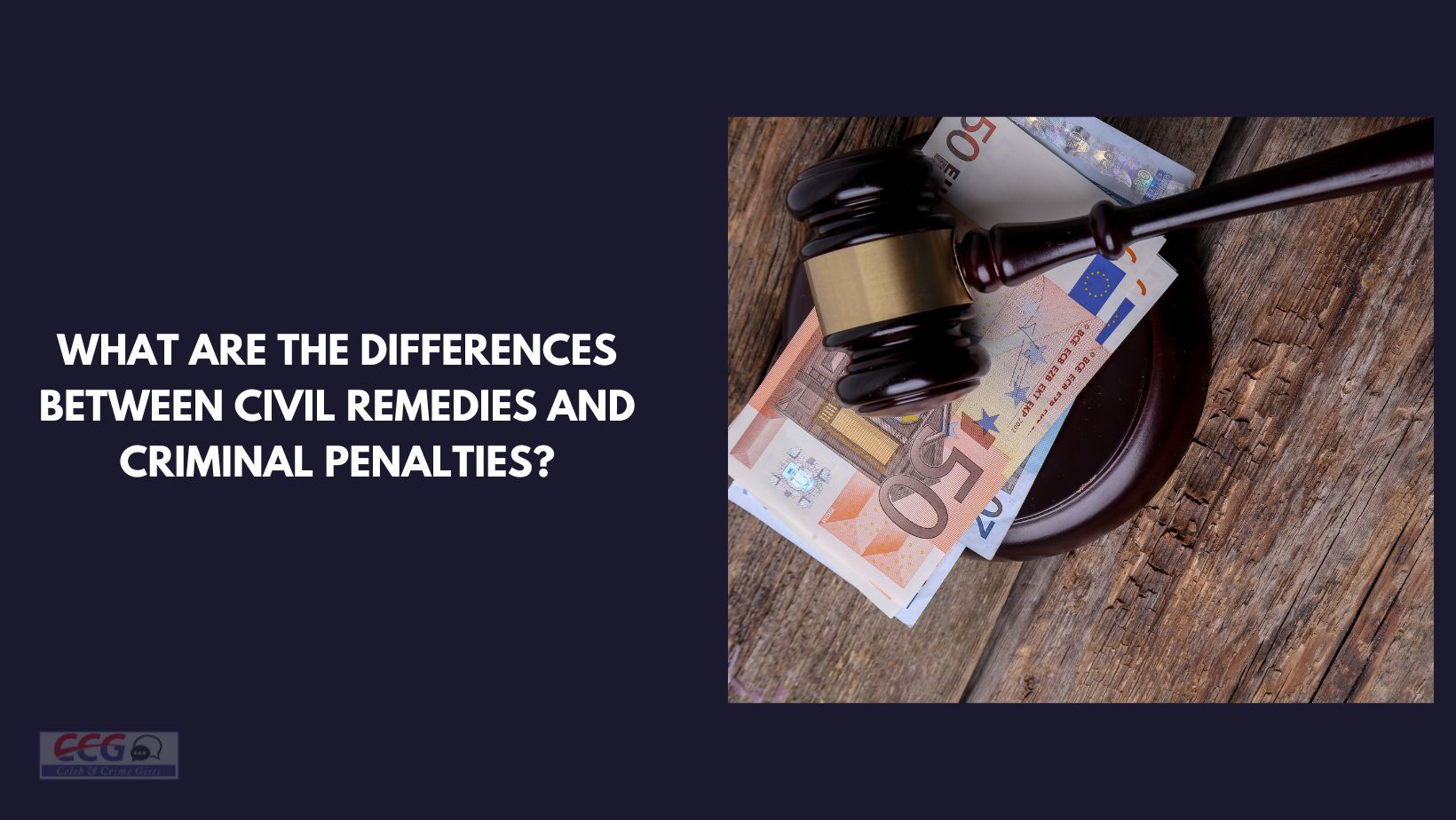What are the differences between civil remedies and criminal penalties?’ If you’re confused about the differences between civil remedies and criminal penalties, don’t worry – you’re not alone! While both types of sanctions can be imposed for illegal behaviour, they serve very different purposes and have distinct consequences. In this blog post, we’ll explore the key differences between civil remedies and criminal penalties, so that you can better understand your legal rights and responsibilities. So sit back, grab a cup of coffee (or tea!), and let’s dive in!
The purpose of this article is to provide a general overview of the differences between civil remedies and criminal penalties. In many cases, the terms are used interchangeably, but there are some key distinctions that should be noted.
Civil remedies are typically sought in cases where one party has suffered some sort of harm or loss as a result of another party’s actions. The goal of civil remedies is to compensate the victim for their losses, rather than to punish the perpetrator. Criminal penalties, on the other hand, are imposed by the state in response to criminal acts. The main goal of criminal penalties is to deter future crime and protect society, rather than to compensate the victim.
There are several key differences between civil remedies and criminal penalties. First, civil remedies are usually pursued by the victim, while criminal penalties are imposed by the state. Second, civil remedies typically involve financial compensation, while criminal penalties usually involve incarceration or other forms of punishment. Civil remedies are meant to restore justice, while criminal penalties are meant to uphold public safety.
Definition of Civil Remedies and Criminal Penalties
There are two types of wrongs in the law: civil wrongs and criminal wrongs. A civil wrong is any wrongful act that does not rise to the level of a crime. A criminal wrong is an act that violates a criminal law.
The main difference between civil remedies and criminal penalties is that civil remedies are designed to compensate the victim, while criminal penalties are designed to punish the offender.
READ POST: What is the difference between civil cases and criminal cases?

Civil remedies can take many forms, including monetary damages, injunctions, and specific performance. Criminal penalties typically include fines, imprisonment, or both.
In some cases, both civil and criminal remedies may be available for the same act. For example, if someone commits fraud, they may be sued civilly by the victim and prosecuted criminally by the state.
Types of Civil Remedies and Criminal Penalties
There are two types of civil remedies: compensatory damages and punitive damages. Compensatory damages are intended to make the victim whole again, while punitive damages are designed to punish the wrongdoer. There are also two types of criminal penalties: incarceration and fines. Incarceration is used to punish offenders and protect society, while fines are used as a deterrent to crime.
Pros and Cons of Civil Remedies vs. Criminal Penalties
When it comes to the law, there are two different types of punishments that a person can face: civil remedies and criminal penalties. Both have their own set of pros and cons that should be considered before any final decisions are made.
Civil remedies are typically used in cases where two parties have a dispute that needs to be resolved. This can be anything from a simple disagreement between neighbours to a more serious issue like a breach of contract. The goal of civil remedies is to restore any losses that were incurred and to prevent future disputes from happening. Some examples of civil remedies include mediation, arbitration, and lawsuit.
Criminal penalties, on the other hand, are typically reserved for more serious offenses. These can include crimes like assault, theft, or murder. The goal of criminal penalties is not just to punish the offender, but also to deter others from committing similar crimes. Some examples of criminal penalties include jail time, fines, and community service.
So, what are the pros and cons of each? Let’s take a closer look:
Civil Remedies:
Pros:
-Can be less expensive than criminal penalties
-The process is typically quicker than going through the criminal justice system
-Allows for some degree of flexibility in terms of punishment
-Can help repair relationships between parties involved
Cons:
-Can be time-consuming
-May not always end in a satisfactory result for either party
Examples of Appropriate
Criminal penalties are appropriate when the government is seeking to punish an individual for breaking the law. This might include jail time, fines, or other punishments. Civil remedies, on the other hand, are designed to compensate the victim of a crime or to prevent future harm.
For example, if someone steals your car, you can file a police report and the perpetrator may be charged with a crime. If convicted, they could face jail time or a fine. However, this does not do anything to get your car back or reimburse you for your losses. In that case, you would need to file a civil lawsuit against the thief in order to seek compensation.
READ MORE: The Role of Mental Health Treatment in the Rehabilitation of Offenders
Similarly, if someone vandalizes your property, you can call the police and they may press charges. The vandal could be fined or jailed as punishment. But again, this does not repair your property or give you any restitution. You would need to file a civil suit in order to get compensated for the damages.
Conclusion
In conclusion, CR and criminal penalties are two distinct legal remedies that each have their place in our justice system. CR offer individuals the opportunity to seek restitution or compensation for damages incurred while criminal penalties provide a more punitive approach to rectifying wrongs committed by parties. Both of these options are important when it comes to ensuring justice is served appropriately, so it is important to understand the differences between them before deciding how best to proceed with any given situation.

